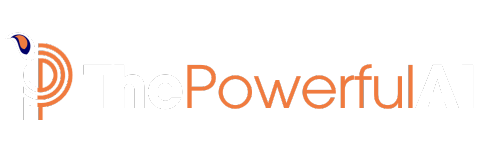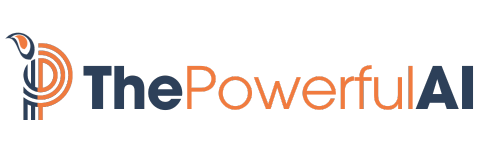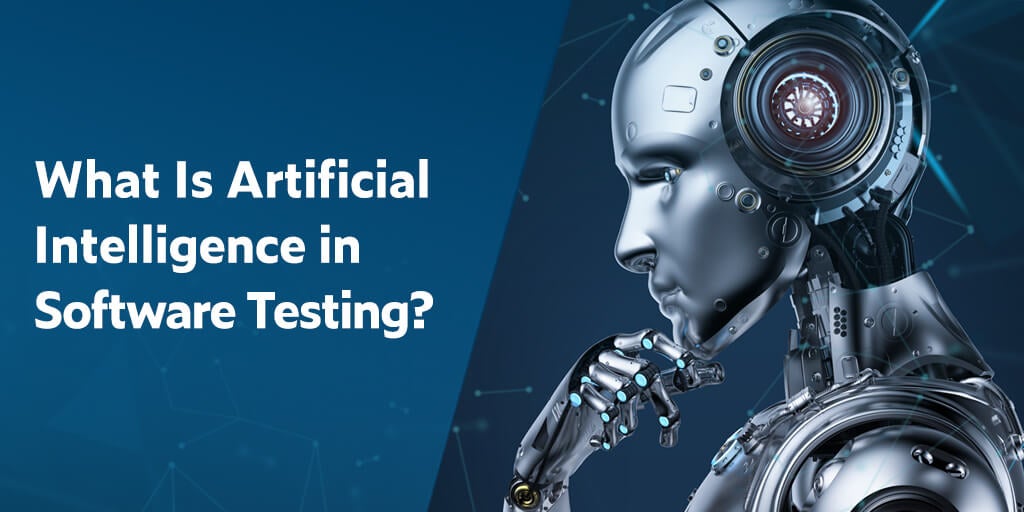AI technologies optimize test cases by analyzing data, identifying patterns, and trends, helping testers focus on critical areas and reducing the number of test cases required. AI revolutionizes the software testing industry by automating processes, creating test cases, foreseeing problems, and improving performance testing.
While AI is not expected to replace human testers entirely, it enhances their capabilities and efficiency. Machine learning has limitations and cannot handle problems that the AI system is unaware of, ensuring that software testers will continue to play a crucial role in the industry.
AI-powered test automation allows for automatic test case generation based on requirements, user stories, and historical data, as well as easy identification of changes in the application.

Credit: www.udemy.com
The Role Of Artificial Intelligence In Software Testing
The role of Artificial Intelligence (AI) in software testing cannot be underestimated. AI technologies have revolutionized the way software testing is conducted by automating processes, optimizing test cases, and enhancing test script maintenance. In this article, we will delve into the various aspects of AI in software testing and explore how it is changing the landscape of this critical phase of software development.
Automated Test Generation
One of the key areas where AI has made significant strides is in automated test generation. Traditionally, test cases were manually created by testers based on their domain knowledge and expertise. However, with the introduction of AI, automated test generation has become a reality. AI algorithms analyze vast amounts of testing data, identify patterns and trends, and generate test cases automatically. This not only saves time but also ensures comprehensive test coverage.
Optimizing Test Cases
Another crucial role of AI in software testing is optimizing test cases. In complex applications, it is not practical to test every possible scenario or combination. AI algorithms can analyze testing data, prioritize the most critical areas of the application, and optimize test cases accordingly. By focusing on the high-risk areas, testers can uncover potential issues early in the development cycle, improving the overall quality of the software.
Ai In Test Script Maintenance
Test script maintenance is often a time-consuming and resource-intensive task. As software evolves, test scripts need to be updated to accommodate changes in functionality. AI can assist in test script maintenance by automatically analyzing changes in the application and suggesting modifications to the existing test scripts. This streamlines the process of keeping test scripts up-to-date and ensures that the test coverage remains comprehensive.
In conclusion, the role of AI in software testing is pivotal. From automated test generation to optimizing test cases and test script maintenance, AI technologies have revolutionized the software testing process. By leveraging AI, organizations can achieve faster, more comprehensive, and efficient software testing, ultimately leading to higher-quality software products.
Benefits And Limitations Of Ai In Software Testing
Artificial Intelligence (AI) has revolutionized the field of software testing by introducing automation, enhanced efficiency, and improved accuracy. However, like any technology, AI also comes with its own set of benefits and limitations. Understanding these aspects is crucial for organizations looking to leverage AI in their software testing processes.
Improved Efficiency And Accuracy
One of the major benefits of AI in software testing is its ability to significantly enhance efficiency and accuracy. AI technologies help optimize test cases by analyzing testing data and identifying patterns and trends. This allows testers to focus on the most critical areas of the application, reducing the time and effort required for testing. With AI-powered tools, repetitive and mundane testing tasks can be automated, allowing testers to allocate their time to more strategic activities.
Reduced Test Case Requirement
Another advantage of AI in software testing is the reduced test case requirement. Traditional testing approaches usually require a large number of test cases to achieve comprehensive coverage. However, AI-based testing tools can intelligently generate test scenarios based on machine learning algorithms and historical testing data. This helps in identifying redundant or unnecessary test cases, ultimately reducing the overall test case requirement without compromising on quality.
Ai’s Limitations In Test Coverage
Although AI brings numerous benefits to software testing, it also has some limitations. One such limitation is the test coverage. AI-driven testing tools heavily rely on historical data and patterns to generate test cases. This means that if a particular scenario or pattern is not present in the historical data, the AI may miss it while generating test cases. This narrow scope of coverage can potentially result in the oversight of critical issues that were not encountered before.
However, it’s important to note that these limitations can be mitigated by combining human expertise and AI capabilities. Human testers can provide valuable insights and domain knowledge, ensuring comprehensive test coverage that encompasses both known patterns and potential unknown scenarios.
The Future Of Ai In Software Testing
Artificial Intelligence in software testing is revolutionizing the industry by automating processes, optimizing test cases, and improving performance. While AI is expected to enhance efficiency and accuracy, it is not anticipated to replace human testers completely.
Emerging Trends In Ai Testing
Artificial Intelligence (AI) is rapidly transforming the software testing landscape. As technology continues to advance, AI testing is witnessing several emerging trends that promise to revolutionize how testing is conducted. One such trend is the integration of AI algorithms in test case optimization. By leveraging machine learning and data analytics, AI technologies can analyze vast amounts of testing data, identify patterns, and trends. This enables testers to focus on the most critical areas of an application and reduce the number of test cases required. Additionally, AI is also being used for predictive analytics, enabling testers to anticipate potential issues and improve overall performance testing.
Incorporating Ai In Qa Processes
The incorporation of AI in Quality Assurance (QA) processes is another significant aspect of the future of AI in software testing. AI-powered tools can automate repetitive and mundane testing tasks, freeing up testers to focus on more critical aspects of their work. These tools can quickly analyze vast amounts of data, perform complex calculations, and detect anomalies that may be missed by human testers. By automating these processes, AI allows for faster and more accurate testing, reducing the time and effort required for testing cycles.
Ai’s Impact On Testers’ Roles And Skills
AI is also influencing the roles and skills required for testers in the future. As AI takes over repetitive and manual testing tasks, the role of testers is shifting towards more strategic and analytical responsibilities. Testers will need to develop skills in areas such as understanding AI algorithms, data analysis, and implementing AI-powered testing tools. Additionally, testers will also play a crucial role in validating and calibrating AI models to ensure their accuracy and effectiveness in software testing. The future of AI in software testing presents new opportunities for testers to upskill and expand their expertise in line with evolving technologies.
Overall, the future of AI in software testing is promising. With its ability to optimize test cases, automate repetitive tasks, and transform testers’ roles, AI is set to revolutionize the way software testing is conducted. As technology continues to advance, it is essential for testers to embrace AI and adapt their skills to stay relevant in the fast-paced world of software testing.
Frequently Asked Questions On Artificial Intelligence In Software Testing
How Is Ai Used In Software Testing?
AI technologies optimize test cases by analyzing data and identifying patterns, reducing the required test cases and allowing testers to focus on critical areas. AI automates processes, creates test cases, foresees problems, and improves performance testing. However, AI is not expected to replace human testers completely.
AI is leveraged in software testing through AI-powered test automation, test case generation, and test script maintenance.
Will Ai Take Over Software Testing?
AI technologies optimize test cases by analyzing data, identifying trends, and improving performance. However, AI won’t replace human testers but revolutionize the industry by automating processes, creating test cases, and foreseeing problems. AI in software testing leverages test case generation and script maintenance, saving time and effort.
Will Ai Replace Selenium Testers?
No, AI will not replace selenium testers as machine learning has certain limitations and can only work on problems that the AI system already knows. AI technologies can help optimize test cases by analyzing data and identifying patterns, but human testers are still needed for their expertise.
How Do You Leverage Ai In Software Testing?
Leverage AI in software testing by using AI-powered test automation for test case generation and test script maintenance. AI analyzes testing data to optimize test cases and identify trends, helping testers focus on critical areas and reducing the number of test cases needed.
Conclusion
Artificial Intelligence in software testing is revolutionizing the industry by optimizing test cases and improving performance. AI technologies analyze testing data and identify patterns, allowing testers to focus on critical areas and reduce test cases. However, AI is not expected to replace human testers entirely.
Instead, it complements their expertise and streamlines processes. Leveraging AI in software testing enables automatic test case generation and script maintenance, saving time and effort. Embracing AI in testing is a game-changer that enhances efficiency and effectiveness.





